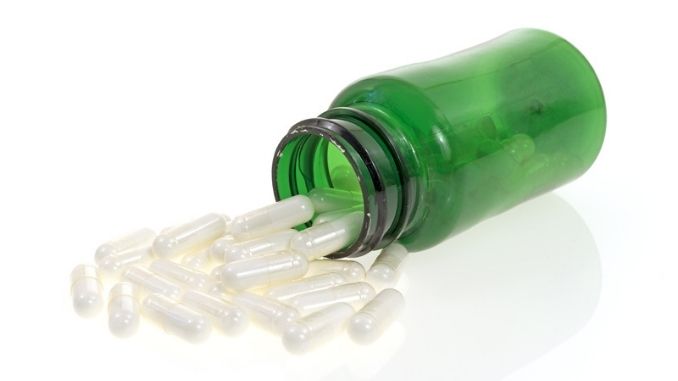By now, you have probably heard the term “probiotics,” but do you know what these are and how they work with your digestion for a healthy gut? Probiotics are live bacteria and yeasts that can help your digestive system. Acidophilus (Lactobacillus acidophilus) is one known strain of probiotic that is widely used. It is found in the mouth, intestine, and vagina.
Brief History
In 1890, Dr. Ernst Moro discovered Lactobacillus acidophilus (L. acidophilus). He studied this more extensively than any other Lactobacilli because of its importance to human health and well-being. L. acidophilus can protect the host by improving digestion, specifically with lactose, improving bowel discomfort and blood lipid chemistry, stimulating immune responses, and potentially killing cancer cells as they develop. Research indicated significant health benefits for those who consumed products containing L. acidophilus.
As this organism attracted great commercial interest, maintaining viability in a dried state was the main problem. Many attempts were made to encapsulate and condition the environment of these dried cultures and to be used on a broader variety of shelf-stable processed food products.
Primary Roles of Acidophilus
Acidophilus is a beneficial probiotic that primarily improves digestive health. Medically speaking, it is used to treat diarrhea and there are many other health benefits associated with acidophilus. However, further studies are needed to substantiate the health benefits of some of these claims that are still under investigation.
Treatment for Lactose Intolerance
Lactose is a sugar found in milk and other dairy products. Around 65% of adults worldwide find it difficult to digest lactose following infancy, which can cause intestinal pain, diarrhea, or gas with bloating. Lactic acidophilus bacteria break down the carbohydrates into simpler components that humans can absorb more efficiently, reducing intolerance symptoms by up to 20%.
Helps Reduce Blood Cholesterol
High cholesterol levels may increase the risk of heart disease. This is especially true for “bad” LDL cholesterol, which can lead to a buildup at an artery site and, over time, build plaque. Studies have shown that Lactobacillus acidophilus reduces cholesterol levels by up to 7%.
Controls Weight
The bacterium in your gut helps break down food and keep other bodily processes running smoothly, including weight control. Evidence shows that probiotics may help you lose weight, especially when you consume a combination of multiple species. However, consuming acidophilus alone concerning weight loss or weight gain is still unclear, and more rigorous studies are needed.
Treatment for Depression
Some studies show gut bacteria can influence brain chemistry, which suggests a possible link between your gut health and depression. Also, research shows that taking probiotics can lower the risk or even help treat symptoms of depression.
Improves Symptoms of Irritable Bowel Syndrome (IBS)
IBS is a painful, long-term digestive disorder that can cause diarrhea, constipation, and other symptoms. Researchers do not fully understand what causes IBS, but there is no cure as of now. The gut microbiota is what makes up our stomach and intestines. Research has shown a possible link between an imbalance of the gut microbiota to IBS symptoms. One study suggests that consuming acidophilus alone in a low dose for a short duration may improve IBS symptoms the most.
Helps Prevent and Reduce Allergy Symptoms
Allergies are chronic conditions that can be debilitating. Research shows that acidophilus helps reduce these allergy symptoms. An interesting finding was that the probiotic decreased the amount of immunoglobulin A antibody, which plays a primary role in allergic reactions. One study also observed that consuming fermented milk with acidophilus improved pollen allergy.
Helps in Treating Yeast Infections
It is common to experience vaginal infections after taking antibiotics. Studies have found that taking L. acidophilus as a probiotic supplement can prevent and treat vaginal infections by increasing lactobacilli in the vagina. However, other studies suggest otherwise.
Probiotics are not only beneficial for digestion. They help keep the balance of bacteria in your body and produce vitamins such as vitamin K2 (important for bone health) and B6 that help keep the nervous system functioning correctly. They also help boost immunity against inflammation.
Potential Adverse Effects
The potential benefits of L. acidophilus are widely known and continuously believed to be effective for many, but for some, though minimal, side effects have been reported. These side effects include gas, bloating, and other mild digestive problems. Allergic reactions to this are infrequent.
Anyone with a serious underlying health condition will need close monitoring when taking probiotics as they can trigger the risk of more severe side effects. Those who should be careful include:
- Critically ill people
- Sick infants
- People who have recently had surgery
- Those with weakened immune systems
Food Sources of Acidophilus
L. Acidophilus is naturally found in the mouth, intestines, and vagina. But they can also be found in an array of fermented foods, including the following:
Some Cottage Cheese
Different bacteria produce different varieties of cheese. L. acidophilus. Despite its lack of popularity as a cheese starter culture, several studies have investigated the benefits of including it as a probiotic.
Kefir
Made of “grains” of bacteria and yeast added to milk or water to produce a healthy fermented drink. The types of bacteria and yeast in kefir can vary, but it commonly contains L. acidophilus, among others.
Sauerkraut
A fermented food made from cabbage. Most of the bacteria in sauerkraut are Lactobacillus species, including L. acidophilus.
Miso
Japanese people make miso by fermenting soybeans. Although a fungus called Aspergillus oryzae is the primary microbe in miso, miso can also contain many bacteria, including L. acidophilus.
Tempeh
Fermented soybeans can create another food that contains several different microorganisms, including L. acidophilus.
Yogurt
Bacteria such as L. bulgaricus and S. thermophilus typically make yogurt but L. acidophilus is also present.
Probiotic Supplements
Probiotic supplements are also in great demand and are available as capsules, tablets, wafers, powders, and vaginal suppositories. You can find these supplements in any health store, pharmacy, or online.
To maximize the potential positive outcomes of L. acidophilus supplements, it’s essential to take them regularly (at least once daily). Eating lots of fermented foods like sauerkraut or sour cream will also provide beneficial microbes. The use of L. acidophilus, either as part of a daily diet or to treat specific conditions, is generally safe, but before starting any supplements, be sure you talk to your doctor.
Learn the best strategies for improving your digestion once and for all. Click here to discover how.
“>











